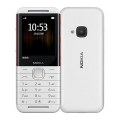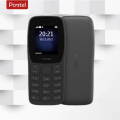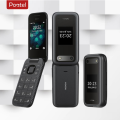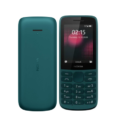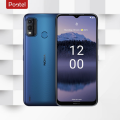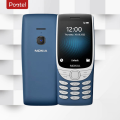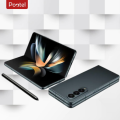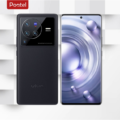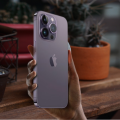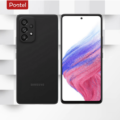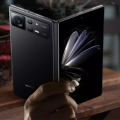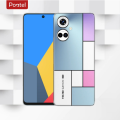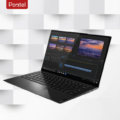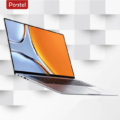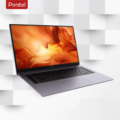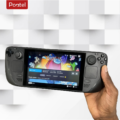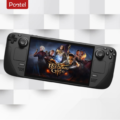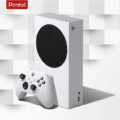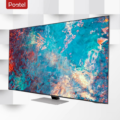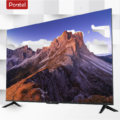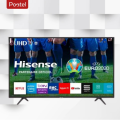- Poatel Shop
- Nokia
- Nokia 8000 4G
Nokia 8000 4G
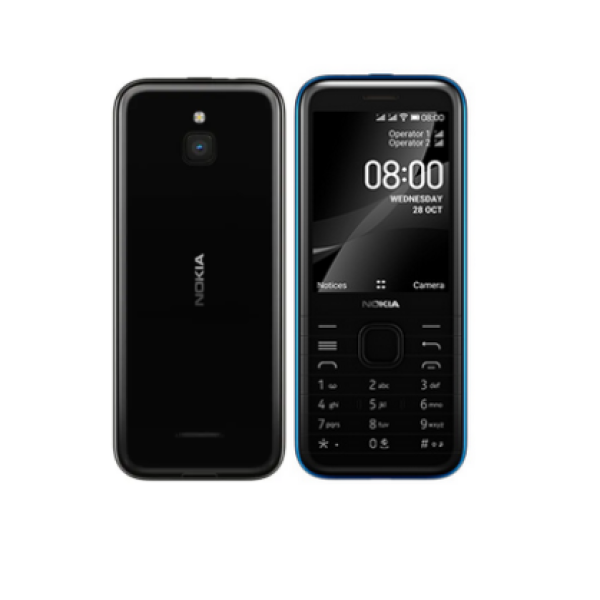





SUMMARY REVIEW
Nokia 8000 4G Is the Featured phone Device that Launched in 06th January 2021, this phone packed with the TFT Display measure across 2.8 inches with resolution of 240 x 320 pixels.
As for the Camera you get Single Camera with 2 Megapixel set up on the Rear and Non Selfie Camera on Front.
Nokia 8000 4G support WhatsApp, Facebook and YouTube plus adventures with Google Maps.
Nokia 8000 4G contain Chipset of Qualicomm MSM8909 Snapdragon 210. The on board Memory is 512 MB RAM and 4 GB Internal Storage (ROM).
Also there have 1500 mAh battery capacity with 2W Fast Charging.
The Full Specification and Price of Nokia 8000 4G is Detailed in the Table Below, But keep in mind that the prices may change as a result of rising and falling Exchange rates
Full Specifications
General
| Device Type | Feature Phone |
| Announced | 06th January 2021 |
| Released | 06th January 2021 |
| Status | Available |
Design
| Type <strong>Design Type</strong> called form factor refers to a mobile phone's size, shape, and style as well as the layout and position of major components of phone. There are three major form factors seen in mobile phones => bar phones, folding phones and sliding phones. | Bar |
| Dimensions | Height 132.2mm, Width 56.5mm, Thickness 12.3mm |
| Weight | 110 Grams |
| Build/Materials | Build with Plastic Flame |
| Phone Colors | Opal White, Citrine Gold, Onyx Black and Topaz Blue |
Network
| 2G Network | GSM 850/900/1800/1900 - SIM1 and SIM2 |
| 3G Network | HSDRA 2100 |
| 4G Network | LTE Bands |
| SIM Card <strong>SIM</strong> (Subscriber Identity Module) is a small card that contains mobile network subscriber's account information. This allows the phone using the card to attach to a mobile network. The SIM card is most commonly associated with GSM and UMTS mobile networks. Moving a SIM card from one phone to another allows a subscriber to switch mobile phones without having to contact their mobile network carrier. SIM cards can also be used by a phone to store limited amounts of data, such as phone numbers and text messages. | |
| Speed | HSPA LTE CAT 150/50 Mbps |
| GPRS <strong>GPRS</strong> (General Packet Radio Service) is a packet oriented mobile data service on the 2G and 3G cellular communication system's global system for mobile communications (GSM), Generally, GPRS is used for the purpose of wireless data transfer, such as sharing pictures and videos or browsing the Internet via a mobile phone connection. | |
| EDGE <strong>EDGE</strong> (Enhanced Data GSM Environment) is a wireless network technology generally considered the next step in the 2G network offers data transfer rates up to four times faster than ordinary GSM networks, Generally, EDGE is used for the purpose of wireless data transfer, such as sharing pictures and videos or browsing the Internet via a mobile phone connection. |
Display
| Display Type <strong>Display Technology => </strong> A number of display technologies and types used in mobile phones => TFT (Thin Film Transistor), IPS (In-Place Switching), OLED (Organic Light Emitting Diode), AMOLED (Active-Matrix Organic Light-Emitting Diode), Super AMOLED (an even advanced version of AMOLED), Resistive Touchscreen (Resistive touchscreens contain two layer of conductive material with a very small gap between them which acts as a resistance), Capacitive Touchsceen (Capacitive touchscreen technology consists of a layer of glass coated with a transparent conductor) | TFT Display |
| Size | 2.8 inches |
| Resolution | 240 x 320 pixels |
| Display Colors <strong>Display Colors</strong> is refers to the number of different shades of colors that the screen is capable of displaying => 64K colors, 256K colors and 16 million colors, Obviously 16M is highest available range of colors and better than others. | 124k Dispay colors |
Camera
| MAIN/REAR CAMERA | Single Camera on Rear |
| Camera Sensor(s) | 2 Megapixel |
| Video Resolution | 720p@30fps |
| LED Flash | Yes, with LED Flash |
| SELFIE CAMERA | Non Selfie Camera on Front |
Platform
| Operating System <strong>OS => </strong> Every computer system run on a base software called Operating System (OS). Operating System controls all basic operations of the computer (such as smartphone, PDAs, tablet computers and other handheld devices). The Operating System allows the user to install and run third party applications (apps), apps are used to add new functionality to the device. | KaiOS |
| Chipset <strong>Chipset</strong> is a group of integrated circuits designed to perform one or a more dedicated functions, often with real time computing constraints, Popular smartphones are equipped with more advanced embedded chipsets that can do many different tasks depending on their programming. | Qualicomm MSM8909 Snapdragon 210 |
| CPU <strong>CPU</strong> (Central Processing Unit) mostly known as processors, CPU processes instructions in order to carry out certain functions that make your device operate properly. Processors are often described as the brain of computers, smartphones and tablets, Smartphones and tablets rely on processors to carry out their every task, Processors are an incredibly important factor in selecting any type of computing device, including your smartphone. | Quad core 1.1 GHz Cortex A7 |
| GPU <strong>GPU</strong> (Graphics Processing Unit) is a single-chip processor designed to rapidly manipulate and alter memory to accelerate the creation of images in a frame buffer intended for output to a display, This includes things such as lighting effects, object transformations, and 3D motion. | Yes, with Adreno 304 |
Memory
| RAM (Memory) <strong>RAM</strong> (Random Access Memory) is a type of computer memory that can be accessed randomly, any byte of memory can be accessed without touching the preceding bytes that allows information to be stored and accessed quickly from random locations. RAM is the most common type of memory found in computer systems, smartphones, tablets and other electronic devices. | 512 MB |
| Internal Storage <strong>Internal Storage</strong> is a data storage space (flash memory) mostly used in smartphones, tablets and other electronic devices where operating system, apps, music, photos, videos, files and other user data Is stored. | 4 GB |
| Card Slot <strong>Memory Card Slot</strong> is a special slot for inserting a memory card. Memory cards allow you to expand the phone's built-in memory, A memory card (sometimes called a flash memory card or a storage card) is a small storage medium used to store data such as text, pictures, audio, and video, for use on small, portable or remote computing devices such as mobile phones, mp3 players, digital cameras. | Yes, with microSD Card |
Connectivity
| Bluetooth <strong>Bluetooth</strong> is a wireless communications technology for exchanging data between mobile phones, headsets, computers and other network devices over short distances without wires, Bluetooth technology was primarily designed to support simple wireless networking of personal consumer devices. | Yes, with Bluetooth Version 4.2 |
| Wi-fi <strong>Wi-Fi</strong> is a popular wireless networking technology using radio waves to provide high-speed network connections that allows devices to communicate without cords or cables, Wi-Fi is increasingly becoming the preferred mode of internet connectivity all over the world. | Yes, with Wi-Fi Hot spot |
| USB | Yes, with microUSB 2.0 |
| Wi-fi Hotspot | |
| GPS <strong>GPS</strong> The Global Positioning System is a satellite-based radio navigation system, GPS permits users to determine their position, velocity and the time 24 hours a day, in all weather, anywhere in the world, In order to locate your position, your device or GPS receiver must have a clear view of the sky. | Yes, with A-GPS |
| NFC <strong>NFC</strong> (Near field communication) is a set of standards for smartphones and similar devices to establish peer-to-peer radio communications with each other by touching them together or bringing them into proximity, usually no more than a few inches. |
Battery
| Battery Type <strong>Battery Type => </strong> Cell phones run on various kinds of batteries depending on the manufacturer, phone size or shape and features. There are basically four types of cell phone batteries => Lithium Polymer, Lithium Ion, Nickel Metal Hydride and Nickel Cadmium. | Li-Ion (Lithium Ion) |
| Capacity <strong>Battery Capacity</strong> is a measure (typically in Amp-hr) of the charge stored by the battery, and is determined by the mass of active material contained in the battery. The battery capacity represents the maximum amount of energy that can be extracted from the battery under certain conditions. | 1500 mAh battery Capacity |
| Placement | Removable battery |

